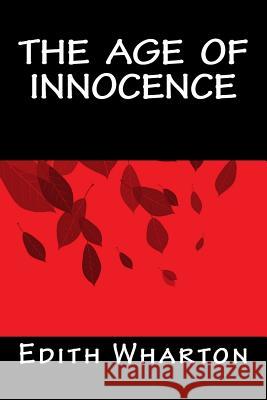The Age of Innocence » książka
The Age of Innocence
ISBN-13: 9781535291941 / Angielski / Miękka / 2016 / 162 str.
The Age of Innocence is Edith Wharton's twelfth novel, initially serialized in four parts in the Pictorial Review magazine in 1920, and later released by D. Appleton and Company as a book in New York and in London. It won the 1921 Pulitzer Prize for Fiction, making Wharton the first woman to win the prize. The story is set in upper-class New York City in the 1870s, during the so-called Gilded Age. The Age of Innocence centers on an upper-class couple's impending marriage, and the introduction of the bride's cousin, plagued by scandal, whose presence threatens their happiness. Though the novel questions the assumptions and morals of 1870s New York society, it never develops into an outright condemnation of the institution. In fact, Wharton considered this novel an apology for her earlier novel, The House of Mirth, which was more brutal and critical. The novel is noted for Wharton's attention to detail and its accurate portrayal of how the 19th-century East Coast American upper class lived, and the social tragedy of its plot. Wharton was 58 years old at publication; she had lived in that world and had seen it change dramatically by the end of World War I. Newland Archer, gentleman lawyer and heir to one of New York City's best families, is happily anticipating a highly desirable marriage to the sheltered and beautiful May Welland. Yet he finds reason to doubt his choice of bride after the appearance of Countess Ellen Olenska, May's exotic and beautiful 30-year-old cousin. Ellen has returned to New York from Europe after scandalously separating herself (per rumor) from a bad marriage to a Polish count. At first, Ellen's arrival and its potential taint on the reputation of his bride-to-be's family disturb Newland, but he becomes intrigued by the worldly Ellen, who flouts New York society's fastidious rules. As Newland's admiration for the countess grows, so does his doubt about marrying May, a perfect product of Old New York society; his match with May no longer seems the ideal fate he had imagined. Ellen's decision to divorce Count Olenski causes a social crisis for the other members of her family, who are terrified of scandal and disgrace. Living apart can be tolerated, but divorce is unacceptable. To save the Welland family's reputation, a law partner of Newland asks him to dissuade Countess Olenska from divorcing the count.
Zawartość książki może nie spełniać oczekiwań – reklamacje nie obejmują treści, która mogła nie być redakcyjnie ani merytorycznie opracowana.











